
Georgia on the move
Georgia, located at the easternmost end of Europe, is caught in the tension of a conflict between pro-Western reorientation and historically Russian sphere of influence, which is reflected in the entire society.
Droa [“It’s Time”] is a photographic search for a country’s identity between the dream of Europe, the fear of Russia and the consequences of years of oppression.
Photographer Jana Islinger spent two months in Georgia for her reportage in spring 2022. A central role in her work is played by the Soviet Russian legacy and the transition from it to a – supposedly – independent system. She accompanied people who are struggling under capitalism, lagging behind in the transition and finding comfort in their faith. But also those who were already born in an independent Georgia. They fight for a self-determined life, far away from the conservative views of the older generation and demand a rapprochement with the EU.
The secessionist regions of Abkhazia and South Ossetia, which fell into a war of secession due to Russia’s influence, are also the subject of the film. Jana Islinger portrayed people who have lost their homeland, but not the hope of returning there one day. Another component of her work is various parties and organisations that are trying to liberalise the country and take action against domestic events and powerful elites infiltrated by Russia.
Orthodox cross on the roadside, Mingrelia
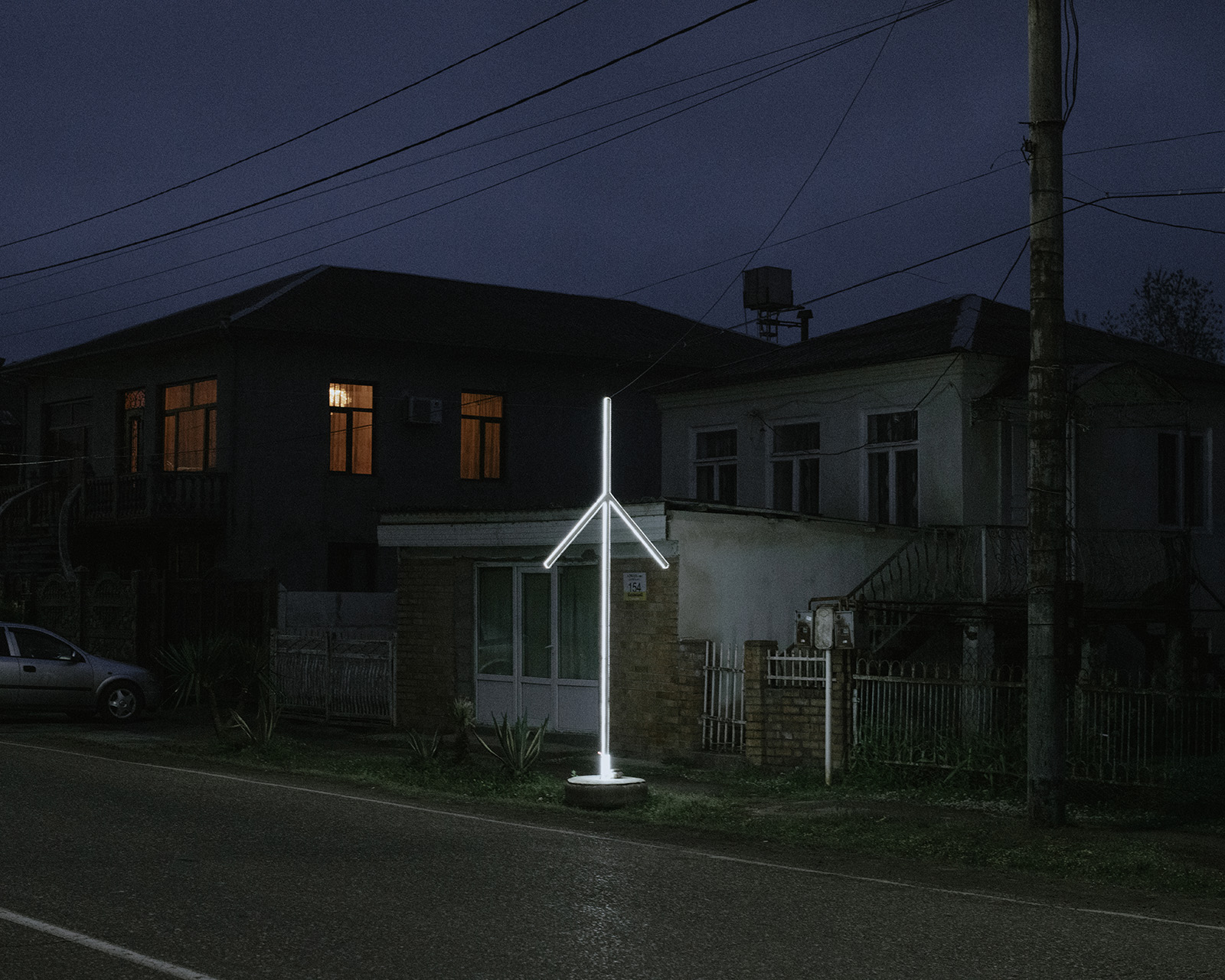
The Georgian Orthodox Church has a decisive influence on the social situation in Georgia. Their Church and the Christian faith developed into a symbol of the unity and identity of the Georgian nation among the population. Today, the Church in Georgia enjoys tax exemption, strong political influence, and a steadily growing membership. Almost 80 % of all Georgians are members of the Georgian Orthodox Church. Yet it is more fractured and divided than ever. Also, the very conservative attitude often leads to great conflicts with western-oriented politics and young generation fighting for their own freedom.
Office of Security Guards, Tbilisi

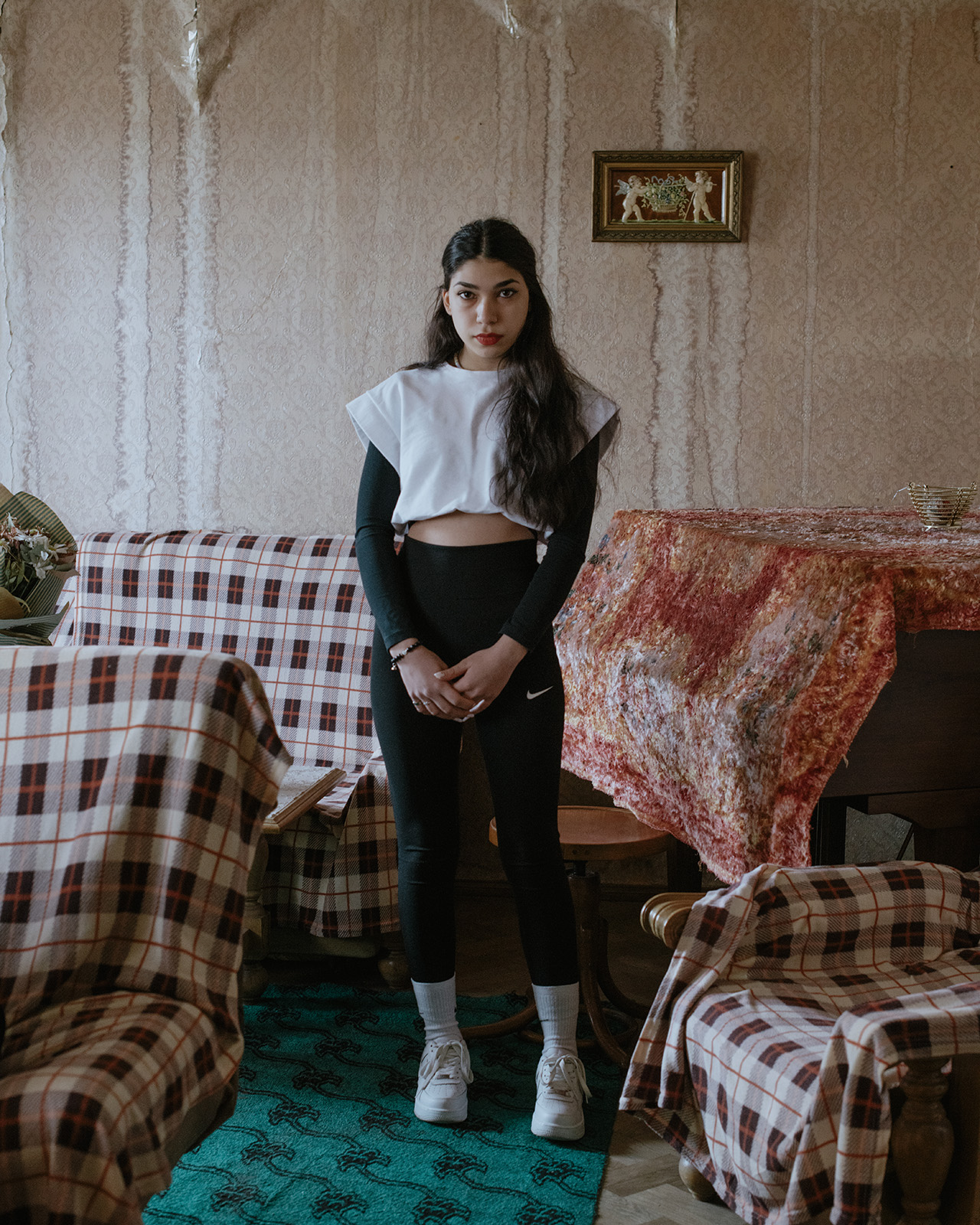
„The freedom that women have in Europe, we will not get as long as we are not part of it. I want to become a doctor, but I have to go abroad for that. After my training, I want to come back and use my skills here. That’s the only way something can change in this country.“
Anastasia, 17, Tbilisi
Georgian Independence Day air show
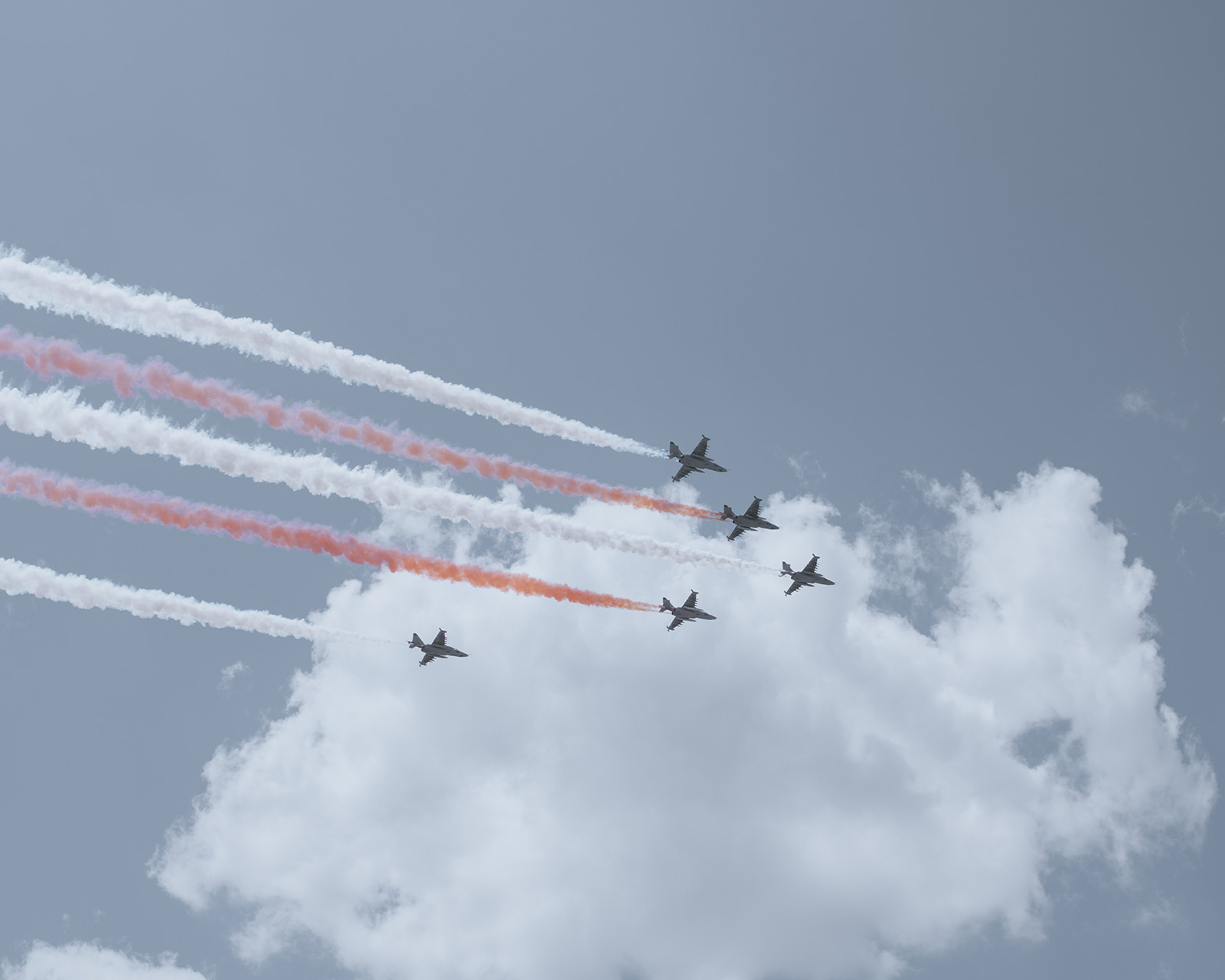
Renata in front of the Technoclub Bassiani, Tbilisi

„In a country where the population is pro-European and the government is pro-Russian, there is no way things can go even reasonably well. The feeling of injustice surrounds you so strongly that you feel something with every breath, something that sticks in your throat. There is only one remedy: you must fight and not give up. Nihilism was broken at the latest March rallies, people felt the power, and we regained the faith that we can achieve our goals.“
Liza (left), member of the small political party „Droa“, Tbilisi
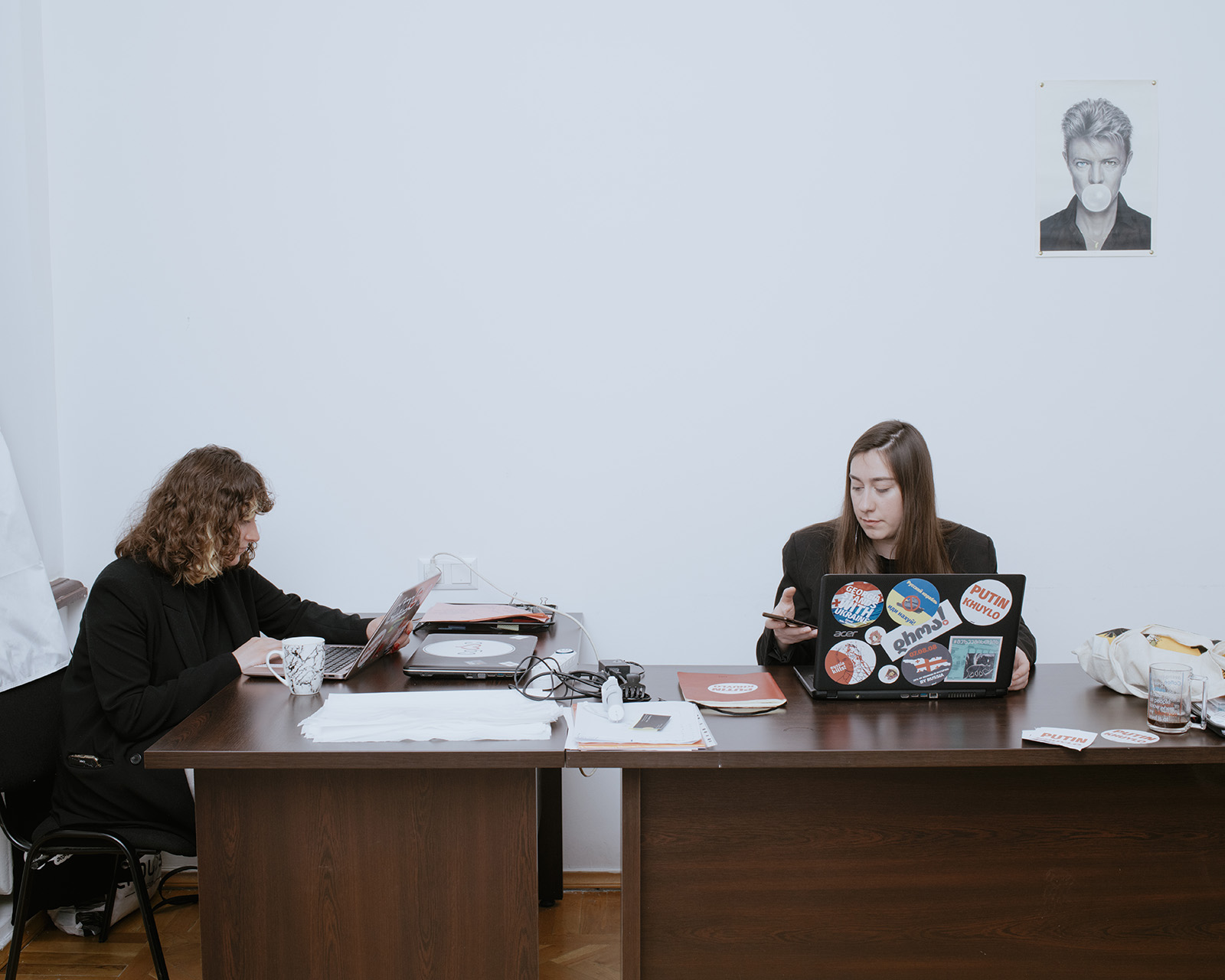

Jamse, Marina and Uligu in their home, a deserted hotel, Tskaltubo
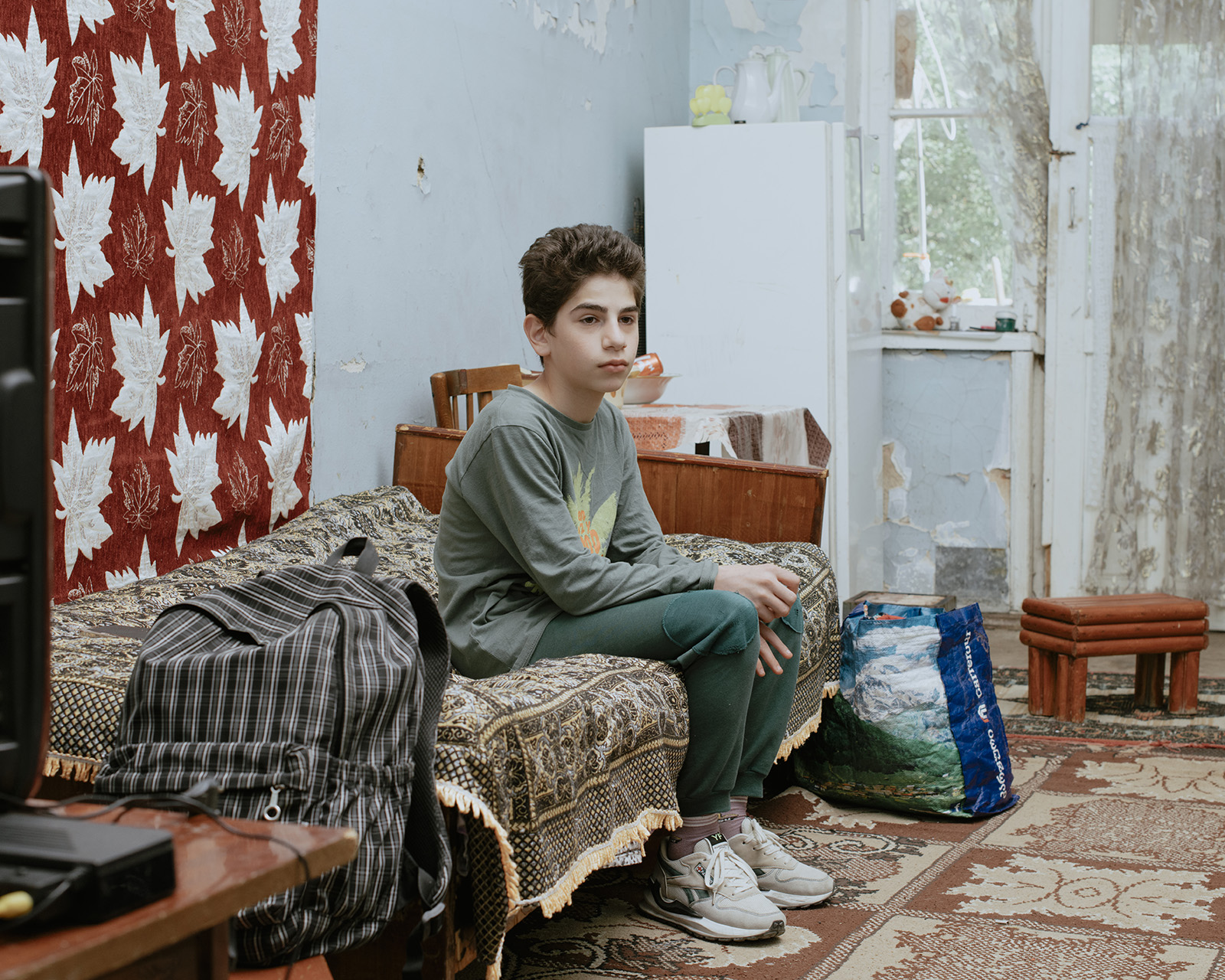
Abkhazia, with a population of around 245,000, lies at the foot of the Caucasus on the northern coast of the Black Sea and is protected by Russia. Under international law, Abkhazia is a region of Georgia, but it declared its independence in the early 1990s. Between 1992 and 1993, a brutal war of secession broke out, which cost the lives of thousands of people and resulted in around 250,000 refugees. Various attempts at reconciliation or reunification failed, and in 2008 Russia recognised Abkhazia as independent. Those who stayed and still live there today would usually rather belong to Russia than Georgia. On the other hand, some of the Georgians who were expelled from their home region at the time have been living in temporary accommodation for years. They all hope to return to their homeland one day or to be given a new home by the government.
Luca, 13, Tskaltubo
Salome, IDP, in front of her house in the Refugee Camp, Tserovani
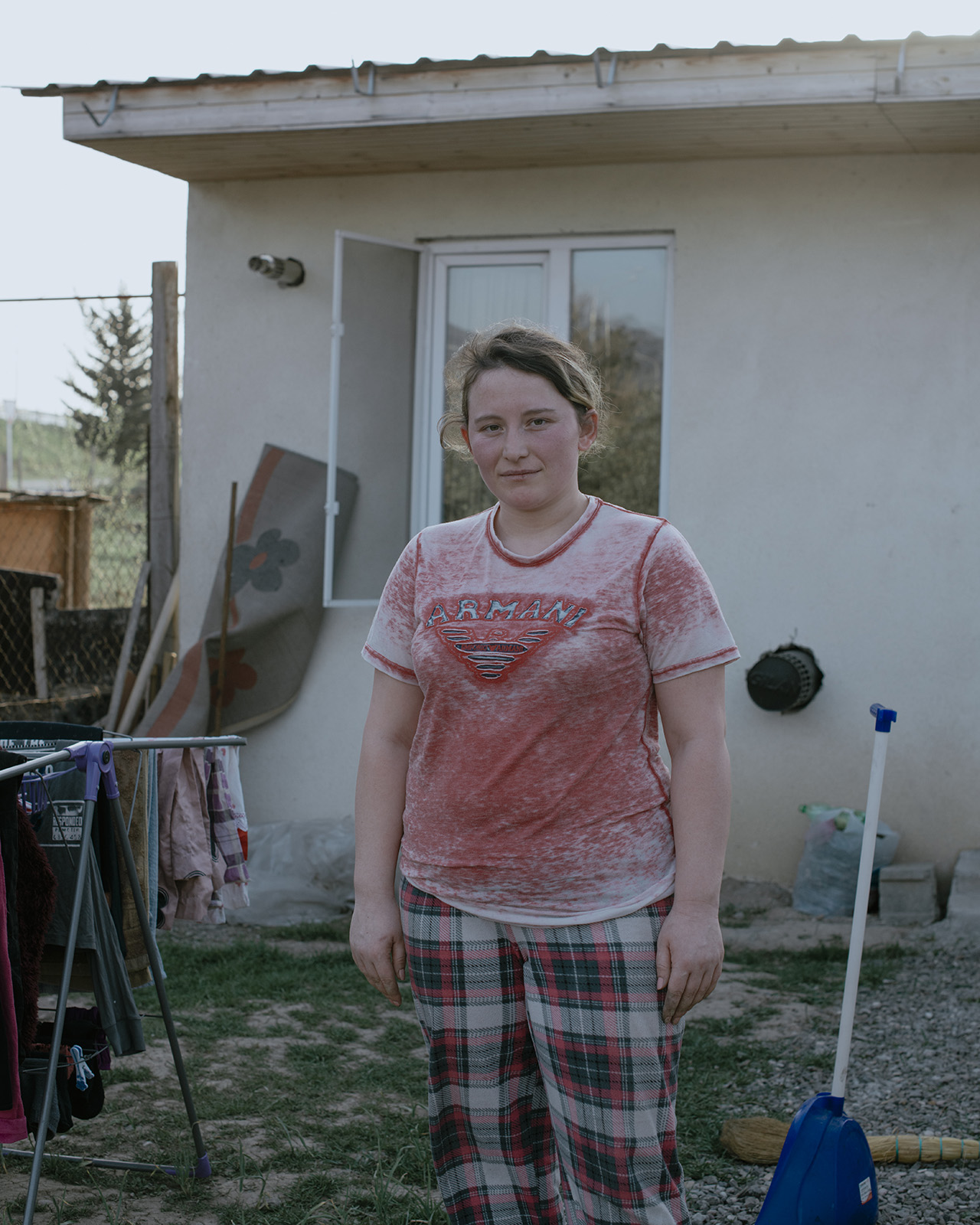
„Originally I am from Abkhazia, came here 30 years ago. We have to live here as we didn’t get any better apartment. I don’t know if we will return or what will happen next. Maybe we will get a new home, many have already gotten one, but many have remained without. There is war in Ukraine and we want to go there to fight, but we are not allowed to. I know that we are at the mercy of fate, but one day we may return to our homeland.“
Merabi fled from his hometown Sokhumi in Abkhazia in 1992, since then he has been living in one of the abandoned hotels of Tskaltubo
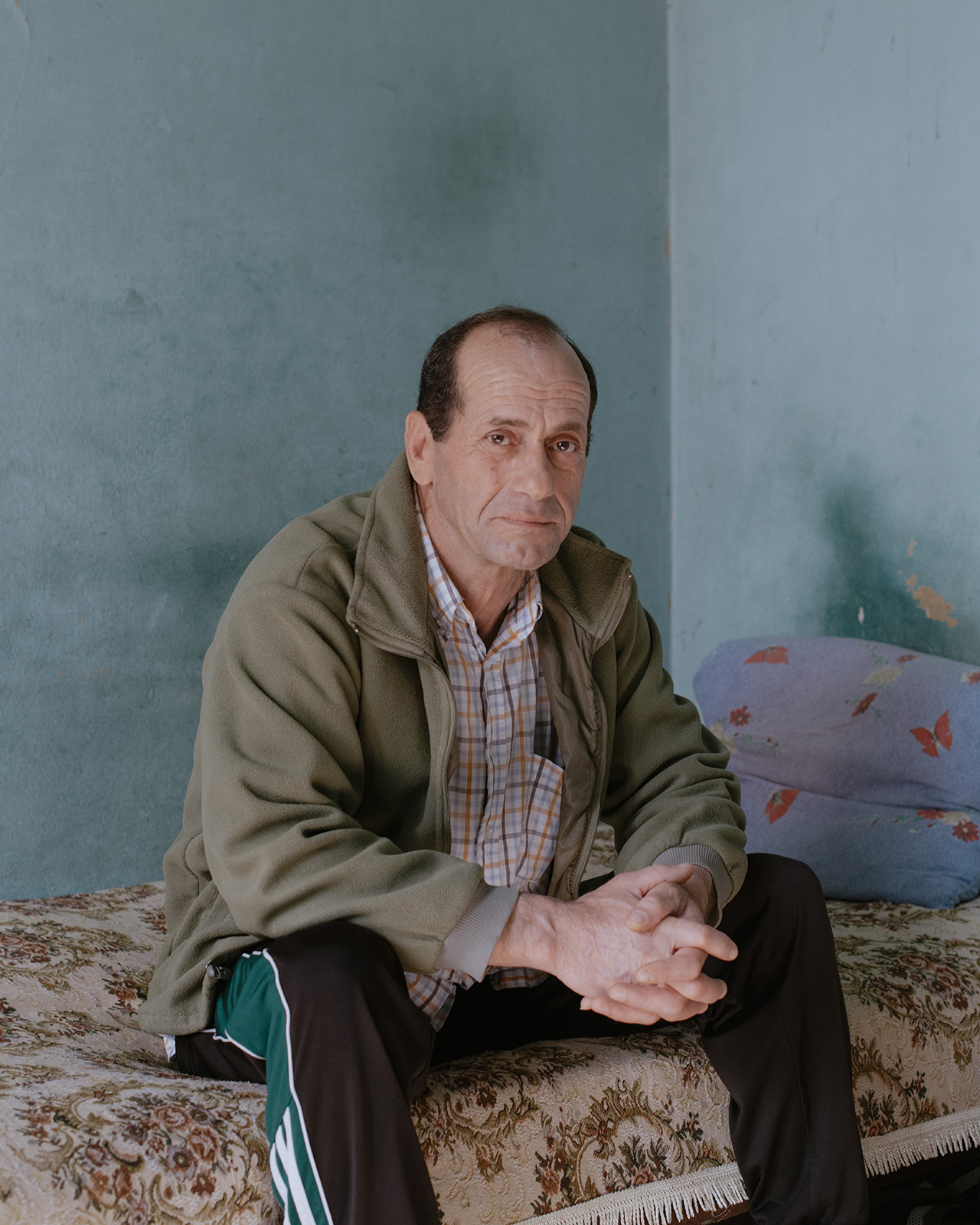
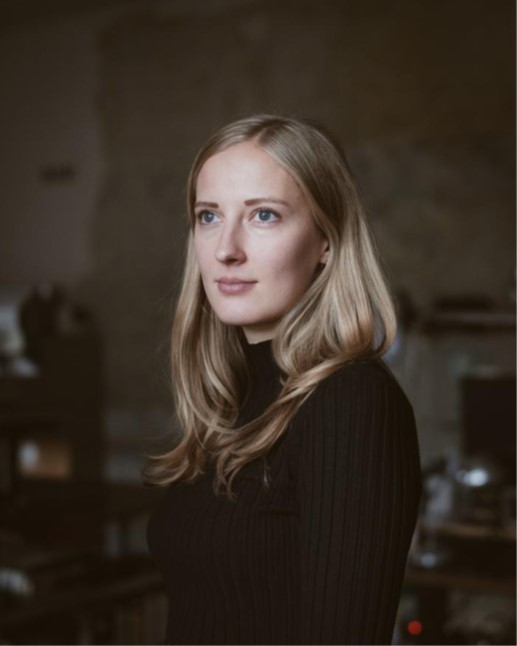
Jana Islinger (*1999) lives and works as a portrait and documentary photographer in Munich. She completed her photography studies at Munich University of Applied Sciences in 2022. In her photographic projects, Jana Islinger mainly deals with socially relevant and social issues. The focus is on people in their environment and the question of identity and their place in society.
She was honoured with the German Youth Photo Award (2022) for her work, won the Bavarian Press Photo Award in the “Newcomer” category (2022) and was a finalist for the LensCulture Portrait Award (2023).
Her photographic work “Droa – Georgien im Aufbruch” was published in the Süddeutsche Zeitung in 2023.

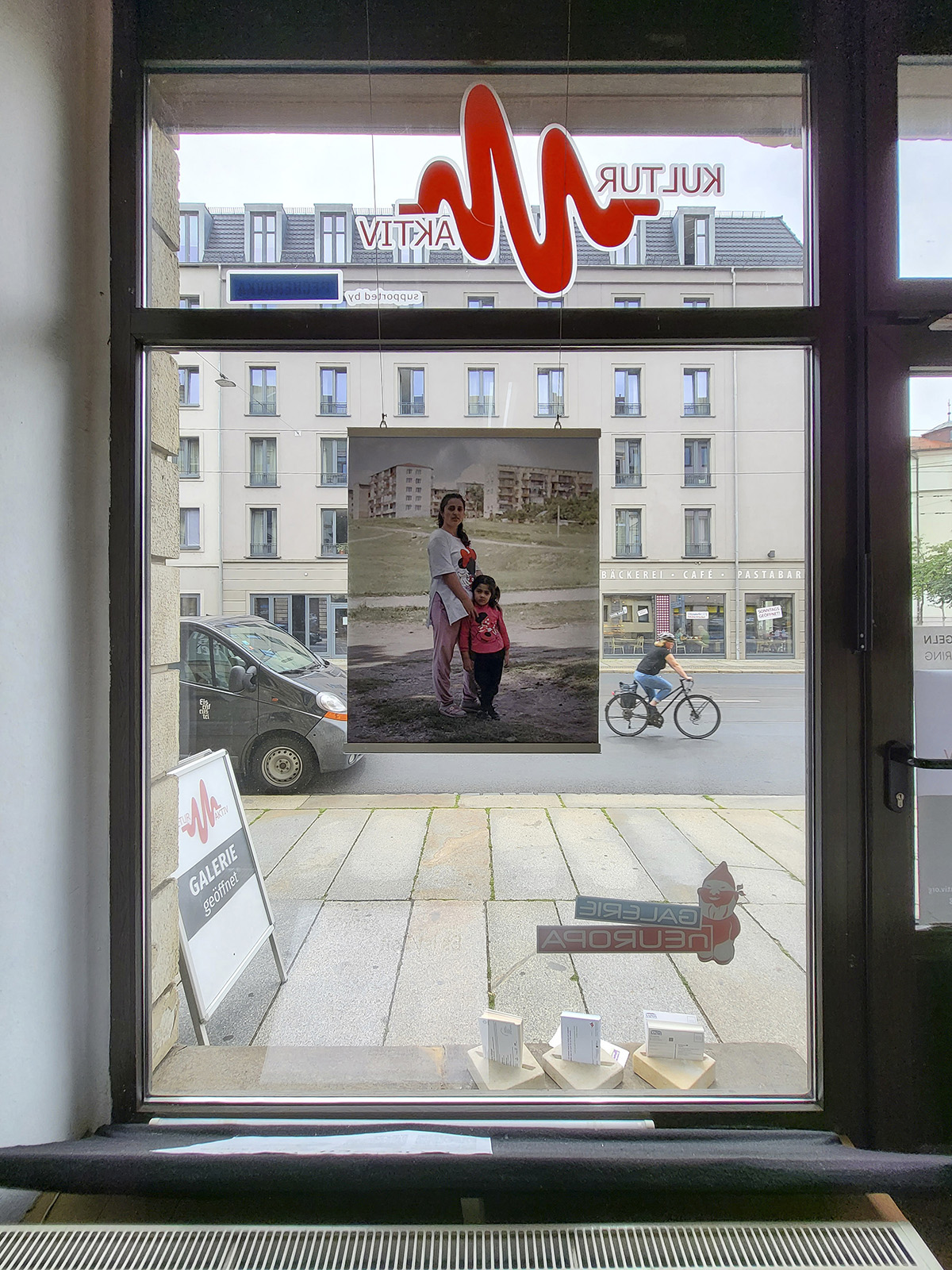

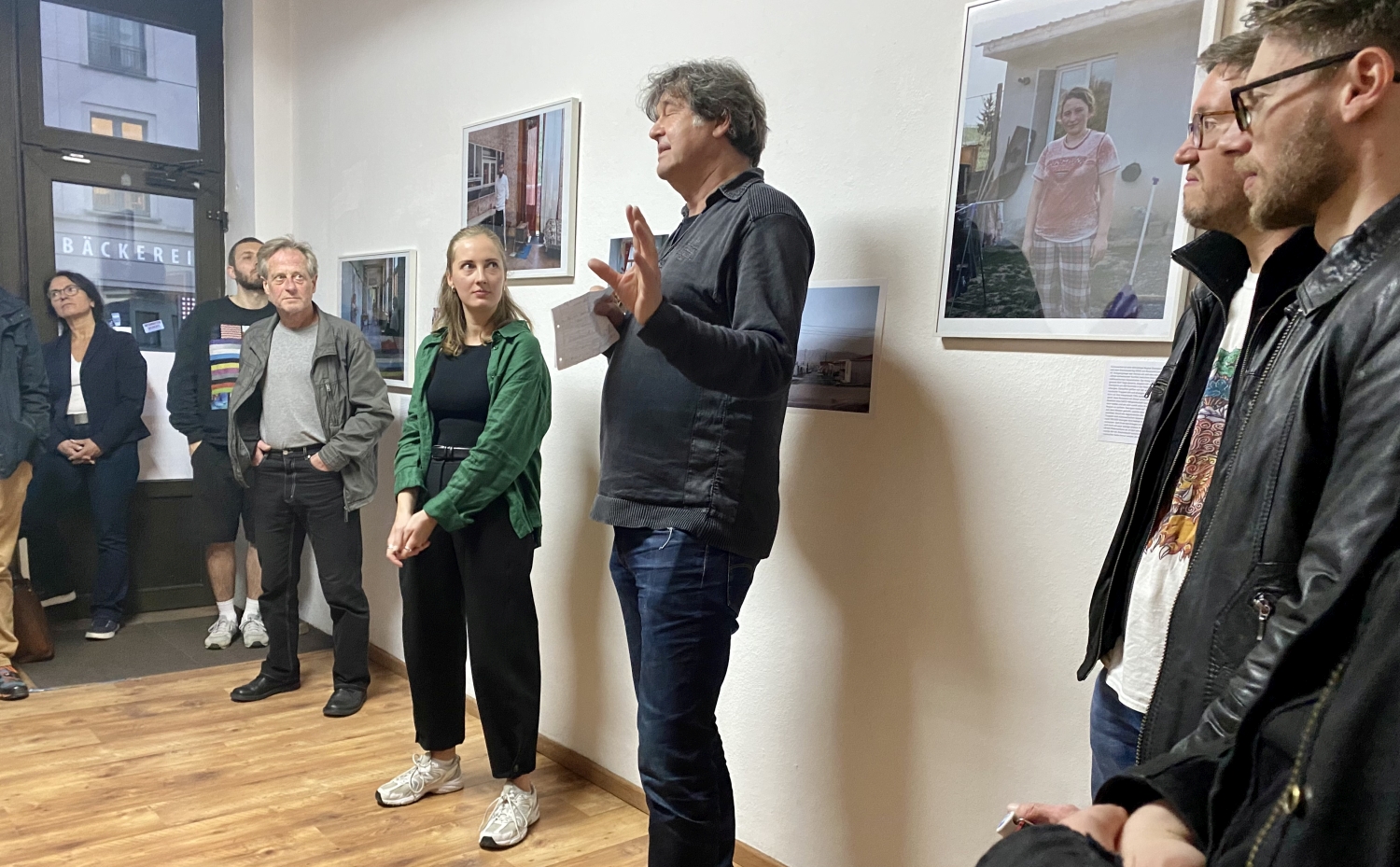
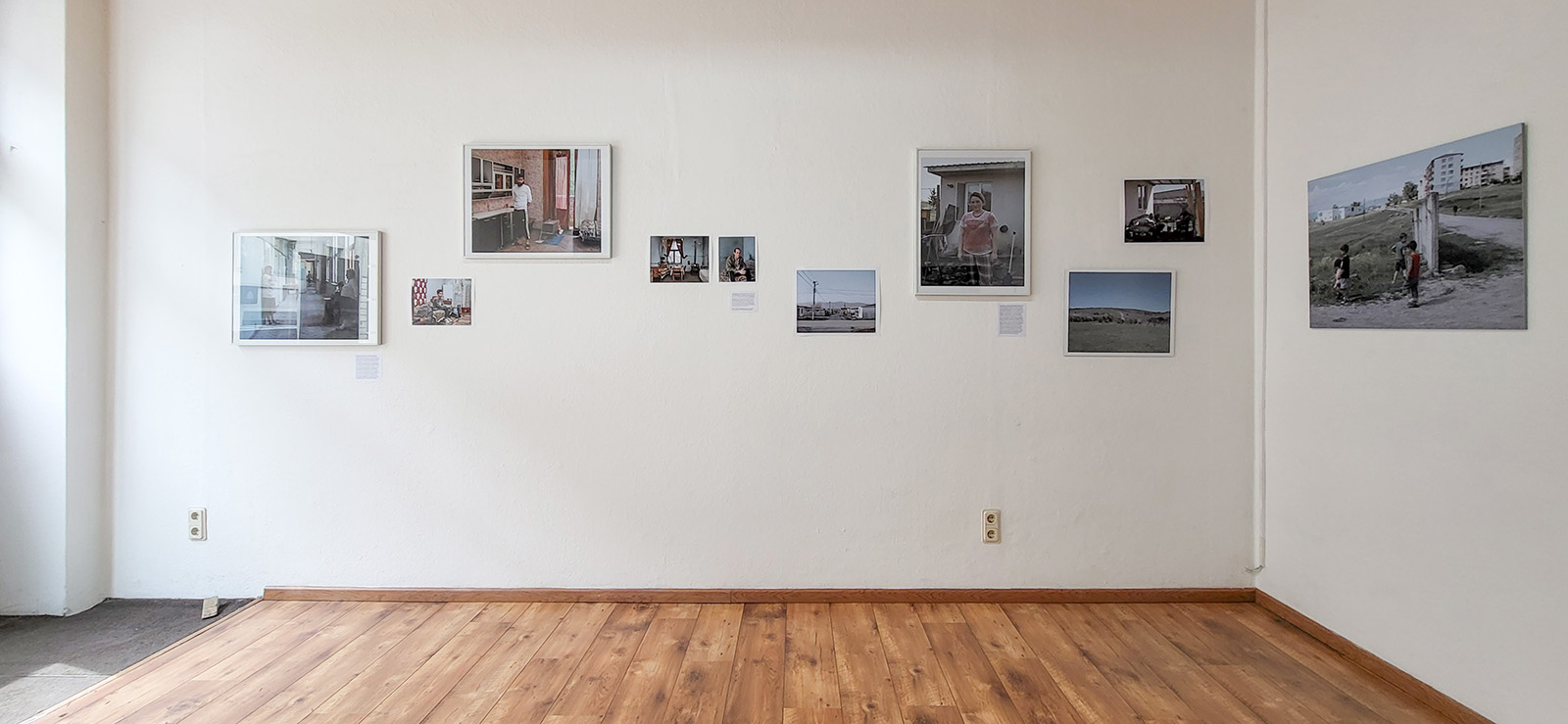
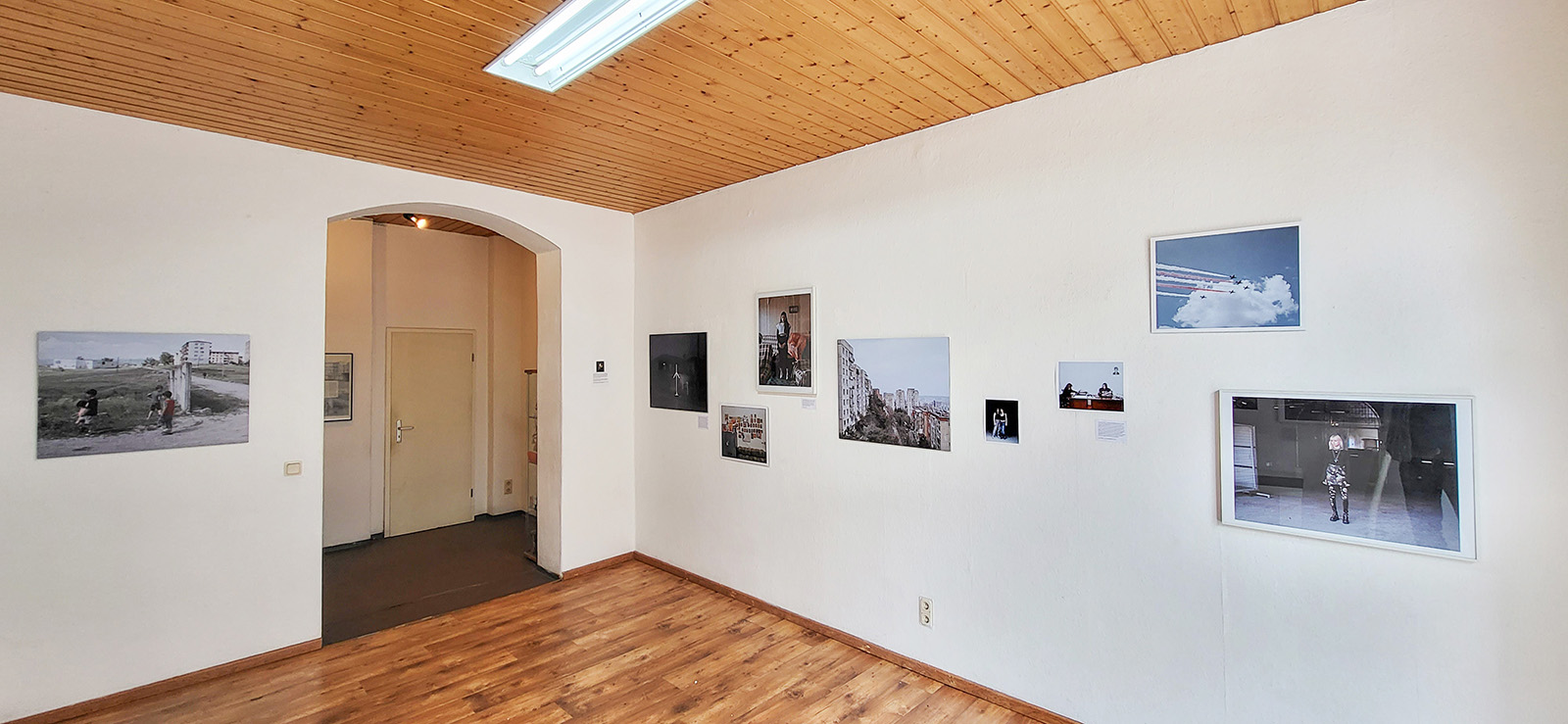
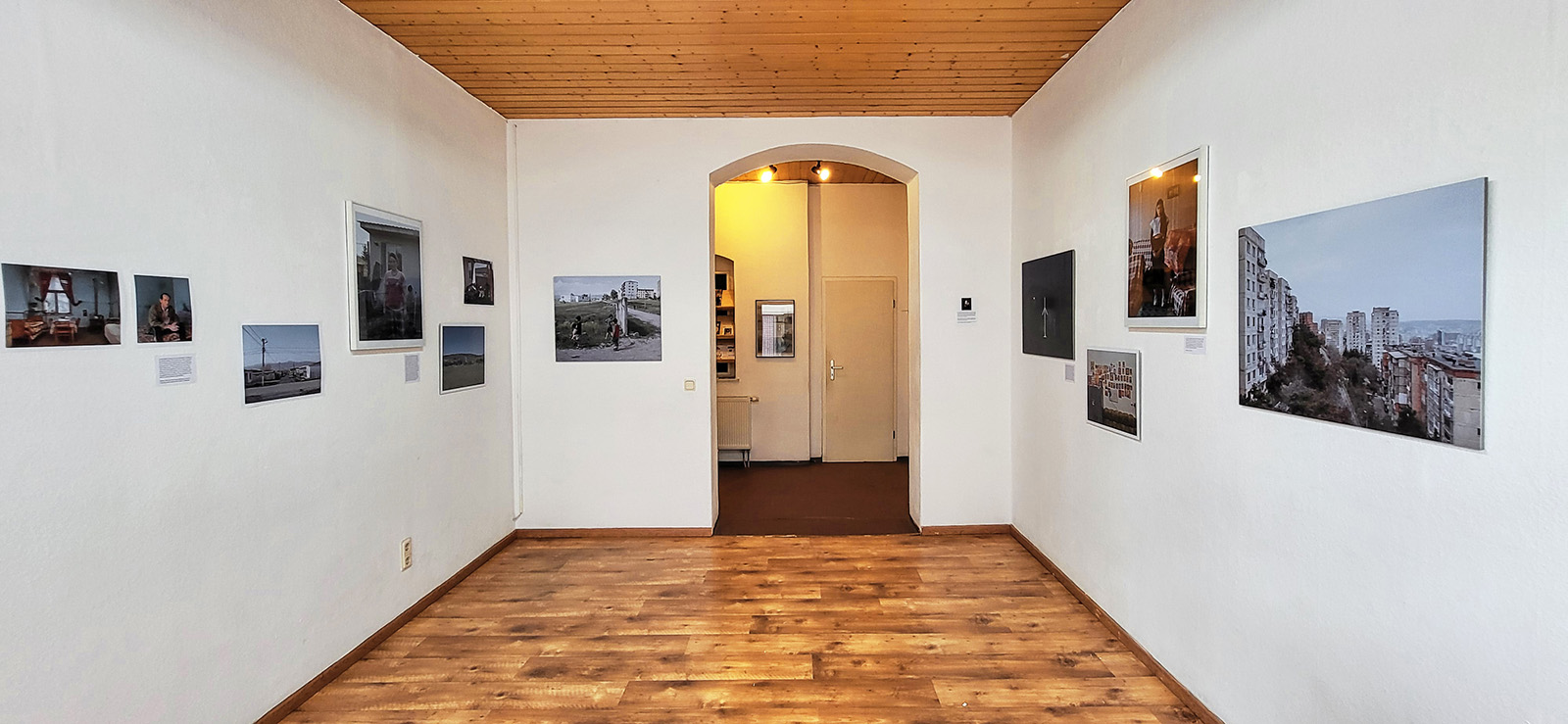

A digital supplement to the exhibition of the same name at the nEUROPA gallery
Photographs: Jana Islinger
Curation: Jan Oelker
Digital conversion: Simon Wolf
Texts: Jana Islinger
Exhibition documentation: Jan Oelker (exhibition space), Matthias Schumann (vernissage)
